An FNP certificate is a post-masters program for nursing professionals who want to specialize and pursue certification as family nurse practitioners. These programs are intended for registered nurses who have already completed a Master of Science in Nursing (MSN).

Family nurse practitioners can provide care to patients of varying ages and demographics. It’s common to find these health specialists in hospitals, medical clinics, schools, and nursing homes.
Editorial Listing ShortCode:
Read on to see if an online FNP certificate program is right for you.
Online FNP Certificate Programs

An FNP certificate program can teach you how to promote health and manage the disease for a range of patients. This type of program is designed for practicing nursing professionals who have already received a master’s degree in nursing.
If you’ve already received your MSN, an FNP certificate program allows you to specialize in primary care and gain the necessary training to pursue certification as a family nurse practitioner. Family nurse practitioners (FNPs) are in high demand in the current job market, and they’re expected to continue being in high demand over the next ten years.
Editorial Listing ShortCode:
Family nurse practitioners have the skills to administer primary healthcare to various and diverse populations. To help make you a well-rounded healthcare professional, FNP certificate programs often require you to study subjects like:
- Psychology
- Social issues
- Cultural differences
- Economic factors influencing health
These represent only a few of the many subjects you’ll study in this type of program. Following the completion of a post-master FNP certificate program, most graduates go on to become:
- Primary care providers
- Nurse researchers
- Nurse educators
If you desire to advance your nursing expertise in this specialty, then pursuing a post-master FNP certificate online can help you meet the qualifications for FNP certification.
Family Nurse Practitioner Careers and Salaries
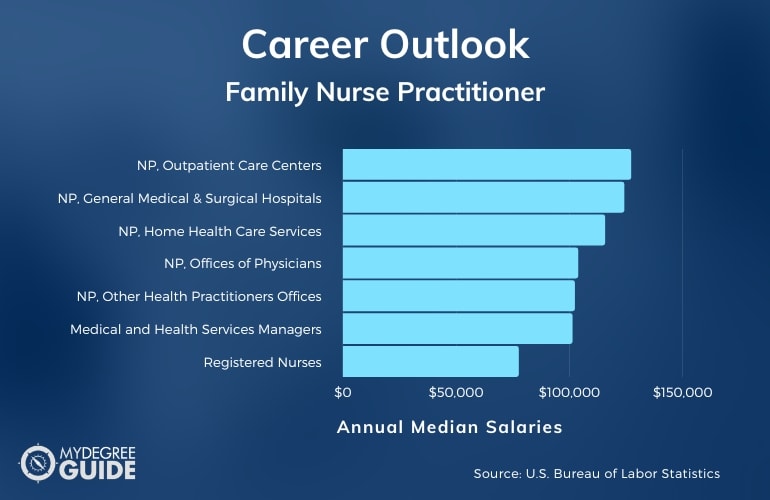
Completing an FNP certificate program online can be a gateway to more advanced careers in the nursing field. According to the Bureau of Labor Statistics, here are the median salaries of potential career paths related to advanced nursing and FNP studies.
| Careers | Annual Median Salaries |
| Nurse Practitioners, Outpatient Care Centers | $127,230 |
| Nurse Practitioners, General Medical and Surgical Hospitals | $124,200 |
| Nurse Practitioners, Home Health Care Services | $115,730 |
| Nurse Practitioners, Offices of Physicians | $103,850 |
| Nurse Practitioners, Offices of Other Health Practitioners | $102,380 |
| Medical and Health Services Managers | $101,340 |
| Registered Nurses | $77,600 |
| Postsecondary Nursing Instructors and Teachers | $77,440 |
| Social and Community Service Managers | $74,000 |
| Health Education Specialists | $60,600 |
While no career is guaranteed, an FNP certificate program can help you work toward professional certification as a family nurse practitioner.
Editorial Listing ShortCode:
Many FNP students go on to become practicing nurse practitioners, and some apply their skills in specialized, growing fields, like geriatrics. Some FNP professionals go on to become advanced researchers or nursing instructors.
Family Nurse Practitioner Certificate Curriculum & Courses

Much like with an online psychiatric nurse practitioner program, taking an FNP certificate program online will introduce you to various topics within the field of advanced nursing.
Here’s a list of sample courses to give you an idea of what to expect from a post-masters FNP certification online program:
- Diagnostic Reasoning and Advanced Physical Assessment: You’re introduced to the advanced methods of assessing cognitive, physical, nutritional, and functional fields.
- Advanced Clinical Pharmacology and Intervention for APRNs: This course teaches you various aspects of pharmacology, such as client education, drug selection, and assessment of pharmacological interventions.
- Role Development in Advanced Practice Nursing: This course covers the history of advanced practice nurses and their role in settings like education, consulting, research, and more.
- Human Pathophysiology: This course introduces you to both the pathophysiology and physiology of human health.
- Health Promotion Across the Life Span: You’ll encounter a variety of case studies that require you to engage in healthcare challenges.
- Clinical Decision Making: You’ll study clinical decision-making models that influence healthcare scenarios.
- Adult Healthcare: You’ll learn how to apply your knowledge to the provision of health care to adults.
- Family Primary Care: This course teaches you how to use evidence-based research to provide health care to people with conditions of varying severity.
- Roles for Nurse Practitioners: You’ll learn about the role nurses play across healthcare settings.
- Geriatric Healthcare: This course teaches you how to tailor your healthcare expertise to elderly patients.
FNP coursework is designed to help you become an effective family nurse practitioner who can work with patients of every age and background.
Admissions Requirements

FNP certificate programs have a series of admission criteria. Common admission requirements include:
- Minimum GPA of 3.0, on average
- Master of Science in Nursing (MSN) degree
- Undergraduate and graduate transcripts
- Unencumbered RN license
- Professional nursing experience
These requirements can vary depending on the program. You can check a school’s website or contact their admissions office to find out more about their specific criteria.
Post Masters FNP Online Programs Accreditation
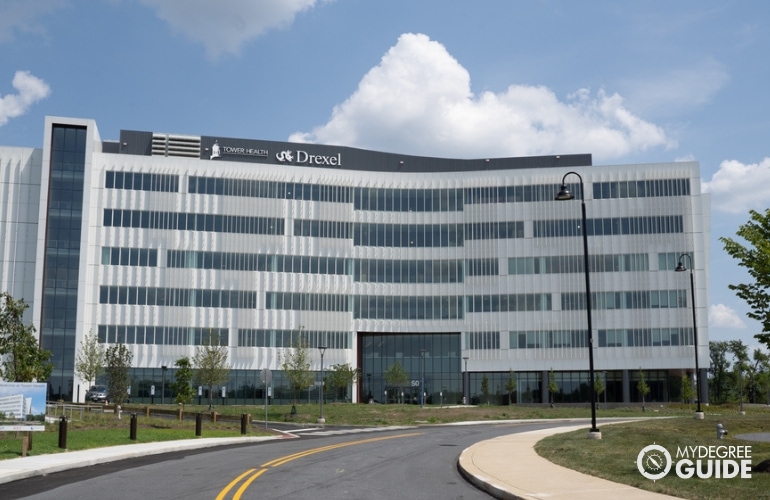
An online post-masters certificate in FNP can be a strategic investment in your career. That said, it’s often essential to earn your certificate from an accredited school. A college or university can receive regional accreditation if an accrediting agency examines them and determines that they provide a high-quality education.
Editorial Listing ShortCode:
Attending an accredited school can also be an eligibility requirement for both financial aid and professional certification. You can visit the US Department of Education’s website to learn more about institutional accreditation.
CCNE Accreditation
The Commission on Collegiate Nursing Education (CCNE) is an accrediting agency that aids in the maintenance of the quality of academic nursing programs. CCNE accreditation attests to the high standard of education that students will receive throughout their program.
The CCNE essentially acts as a regulatory force that ensures institutions are providing nursing education that’s up to industry standards. Completing a CCNE accredited FNP program is a common stipulation for family nurse practitioner certification and licensure.
Family Nurse Practitioner Licensure and Certifications

There are a number of organizations that offer certification for family nurse practitioners. Below is a list of these primary organizations and their approach to FNP certification:
- American Academy of Nurse Practitioners Certification Board (AANPCB): The FNP credential from the AANPCB assesses your knowledge of care across the lifespan.
- American Nurses Credentialing Center (ANCC): The ANCC offers an FNP board certification that lasts 5 years.
- Pediatric Nursing Certification Board (PNCB): The PNCB offers a Certified Pediatric Nurse certification, which allows nurses to advance their careers in pediatrics.
The type of certification that’s right for you will likely be determined by your professional goals.
Financial Aid and Scholarships

Financial aid is a necessity for many students, especially with the rising cost of education. Fortunately, there are many forms of financial aid available to those who qualify.
Financial aid can come in many forms, including student loans, scholarships, and grants. You can fill out the Free Application for Federal Student Aid (FAFSA) to see if you’re eligible for need-based aid from the government. While student loans need to be paid back, they often have lower interest rates than other loans.
Scholarship programs can be offered by your school as well as outside organizations. In addition, you can see if your employer offers tuition reimbursement for professional development.
What Is a Post Masters Certificate in FNP?

A post-masters certificate in FNP is designed for nursing professionals who want to specialize as family nurse practitioners. This program is intended for registered nurses who have already received a Master of Science in Nursing (MSN) degree.
If you hold an MSN, completing an FNP certificate program could allow you to work toward family nurse practitioner certification. The nurses who enter these programs often have the desire to further their careers or switch specialties. As such, these programs may be filled with RNs as well as advanced practice registered nurses (APRNs) who are currently practicing in other specialties.
What Can You Do with a Post Master’s Certificate in FNP?

Earning a post-master FNP certificate online could help you work toward professional certification as a family nurse practitioner. Most graduates go on to become FNPs and work in various healthcare facilities. Others choose to work in education. They might work as nursing instructors in postsecondary institutions or in clinical settings.
Editorial Listing ShortCode:
After earning your FNP certificate, you could also choose to enter more specialized areas within the field. These areas could include geriatrics and pediatrics. Some NPs also specializes in acute or chronic disease management.
How Long Does It Take to Get a Post Master in FNP Online?

An online post-masters certificate in FNP will vary in its duration depending on the program. These programs generally require the completion of between 33 and 37 credits. Students can generally complete their education between 16 months and 22 months.
Online programs tend to allow for more flexibility with your schedule. Some post-master FNP certificate programs allow students to finish coursework in as little as 4 months with full-time study. These are often referred to as on-campus or online accelerated nursing programs. You could then move on to fulfilling the program’s clinical requirements. Part-time enrollment will likely extend your time to completion.
What’s the Difference Between DNP vs. FNP?
Both a family nurse practitioner and a doctor of nursing practice program bear similarities that cause overlap between their respective curriculums.
- Family Nurse Practitioner (FNP): An FNP is a specific type of advanced practice registered nurse (APRN). They often work in primary care.
- Doctor of Nursing Practice (DNP): This is the highest degree in the nursing field. Nurses with DNPs may pursue certification as a type of APRN, such as an FNP. Some pursue leadership positions and opt to forgo APRN certification.
It’s helpful to consider your own career goals when determining which program to pursue.
What’s the Difference Between an FNP Certification vs. Certificate?
Here are some of the differences between an online post master FNP certificate and an FNP certification.
| FNP Certification | FNP Certificate |
|
|
FNP certificate programs are often designed to help you work toward professional FNP certification.
Is a Post Master’s FNP Certificate Online Worth It?

Yes, a post-master’s FNP certificate online is worth it for many professionals. If you are a nursing professional with an MSN, then this certificate program could help you prepare for certification as a family nurse practitioner.
Editorial Listing ShortCode:
According to the Bureau of Labor Statistics, the job outlook for nurse practitioners is very bright. Employment for nurse practitioners is expected to rise by 46% over the next ten years, which is much faster than average. In addition to practicing primary care, graduates may also pursue positions in nursing education or research.
Universities Offering Online Graduate Certificate in Family Nurse Practitioner Programs
Methodology: The following school list is in alphabetical order. To be included, a college or university must be regionally accredited and offer degree programs online or in a hybrid format.

Bradley University offers an online program for a Family Nurse Practitioner Post-Master’s Certificate. There are no campus residency or capstone requirements. The program requires the completion of 35 credit hours and can usually be finished within 2 years. Courses are asynchronous to provide maximum scheduling flexibility.
Bradley University is accredited by the Higher Learning Commission.
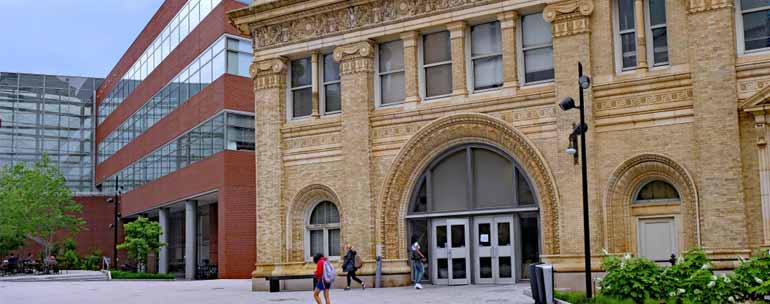
Drexel University offers a Family Nurse Practitioner Post-Master’s Certificate. Potential courses include Professional Issues for Nurse Practitioners, Primary Care of Patients Across the Lifespan, Clinical Health Assessment, and Diagnostic Reasoning. The program does include clinicals, which requires Pennsylvania RN licensure.
Drexel University is accredited by the Middle States Commission on Higher Education.

Grand Canyon University’s Post-MSN Family Nurse Practitioner Certificate can be earned online. The program requires the completion of 37 credits, and each class is 16 weeks long. Potential courses include Family Primary Care I and II, Advanced Pharmacology, and Advanced Health Assessment and Diagnostic Reasoning with Skills Lab. The program also includes a practicum and two on-campus experiences.
Grand Canyon University is accredited by the Higher Learning Commission.

National University offers a Family Nurse Practitioner Certificate. Each course is 4 weeks long, and students can apply at any time of the year. The program includes 600 practicum hours. Upon completion, graduates are eligible to sit for the ANCC and AANP certification exams.
National University is accredited by the WASC Senior College and University Commission.
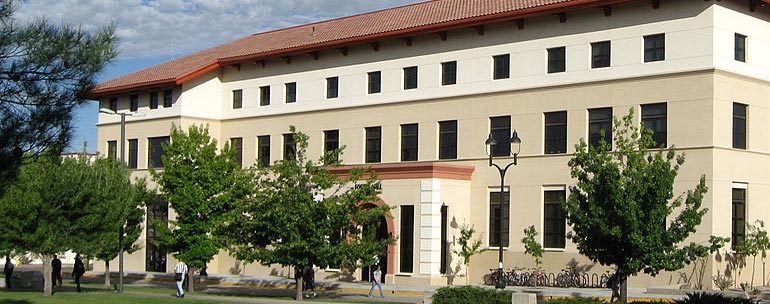
New Mexico State University offers an online program for a Post-Master’s Family Nurse Practitioner Certificate. The program requires the completion of 18 credits, including three practicum courses which provide a total of 500 hours of clinical experience. When finished, graduates are eligible to sit for certification exams.
NMSU is accredited by the Higher Learning Commission.
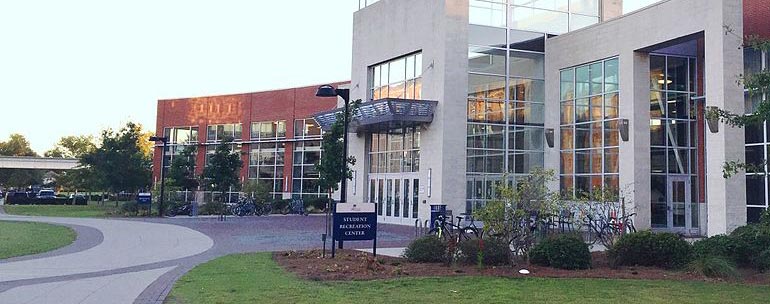
Old Dominion University offers a Post-Professional Certificate in Family Nurse Practitioner that can be earned online. The program typically takes 4 semesters to complete and seeks to prepare students for board certification. Potential courses include Primary Care Approaches for Children, Family and Community Primary Care Assessment, and Advanced Family Nursing I Practicum.
Old Dominion University is accredited by the Southern Association of Colleges and Schools Commission on Colleges.
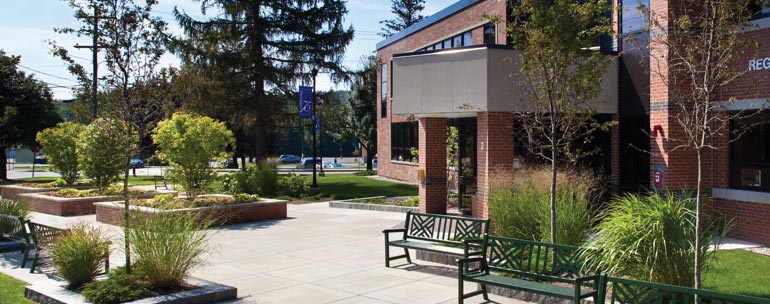
Rivier University offers an FNP Post-Master’s Certificate. Students can usually finish in 3 to 6 semesters, but it can vary depending on their previous education. Each course is 14 weeks long and may be completed online, but students are also required to participate in practicums and an on-campus intensive.
Rivier is accredited by the New England Commission of Higher Education.

The University of Alabama offers a Family Nurse Practitioner Graduate Certificate that can be earned online. The program requires the completion of 21 credit hours of coursework and clinical experiences and can usually be finished in 4 semesters. Students typically complete 180 clinical hours each semester except for the first.
The University of Alabama is accredited by the Southern Association of Colleges and Schools Commission on Colleges.

The University of Arizona offers an online program for a Family Nurse Practitioner Graduate Certificate. The program includes some on-campus experiences and 31 credits of courses. Potential courses include Advanced Pharmacotherapeutics for Nursing, Health Assessment, and Pediatric Health Assessment in Advanced Practice. Part-time students can typically finish in 4 semesters.
The University of Arizona is accredited by the Higher Learning Commission.
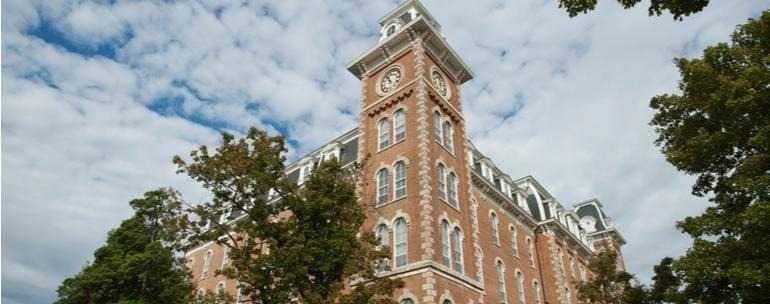
The University of Arkansas offers an online program for a Post-Master’s Certificate in Family Nurse Practitioner. The program requires the completion of 21 credit hours of courses such as Common Problems in Primary Care, Primary Care of Children, and Complex Problems in Primary Care. Applicants must have a master’s degree and at least 2 years of work experience to qualify.
The University of Arkansas is accredited by the Higher Learning Commission.
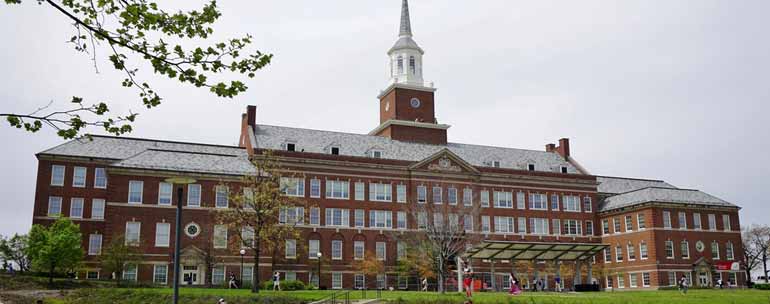
The University of Cincinnati offers an online program for a Post-Master’s Family Nurse Practitioner Certificate. The program is designed for working students and offers full-time and part-time enrollment. There are no on-campus requirements, and clinical hours may be completed locally. Previous students have had a 100% pass rate on the AANP exam.
The University of Cincinnati is accredited by the Higher Learning Commission.

The University of Missouri—Columbia offers an online program for a Family Nurse Practitioner Graduate Certificate. The program requires the completion of 19.5 credit hours, and part-time students can usually finish in 2 years. Students are never required to come to campus, and clinical hours may be completed locally.
The University of Missouri – Columbia is accredited by the Higher Learning Commission.

At the University of New Hampshire, Family Nurse Practitioner Certificate students receive an individualized plan of study depending on the coursework in their MSN program. Each plan usually requires 12 to 39 credits of courses such as Genomics and Ethics, Diagnosis and Management—Diagnostic Reasoning, and Advanced Pharmacology and Therapeutics.
The University of New Hampshire is accredited by the New England Commission of Higher Education.

Utica University offers an Advanced Studies in Family Nurse Practitioner Certificate. Class sizes are small to help ensure personalized support. The program requires the completion of 31 credit hours and can usually be finished in about 1 year. It also requires participation in an in-person practicum, but coursework can be completed online.
Utica University is accredited by the Middle States Commission on Higher Education.
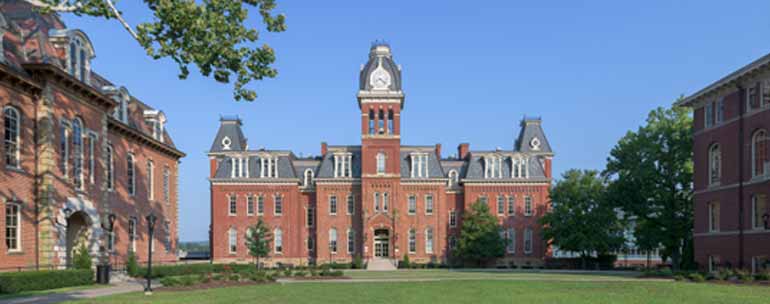
West Virginia University offers a Family Nurse Practitioner Graduate Certificate. This online, low-residency program requires 7 courses and 600 supervised clinical hours. It can potentially be finished in just 3 semesters. Graduates of the program are eligible to sit for national certification exams.
West Virginia University is accredited by the Higher Learning Commission.
Getting Your FNP Post Master’s Certificate Online

Pursuing a post-master FNP program online is a strategic choice for nursing professionals who hold MSN degrees and want to specialize as family nurse practitioners. This type of program can build upon your existing knowledge while giving you opportunities to learn new skills.
Family nurse practitioners have a wide range of knowledge and skills, which allows them to administer primary care to individuals of various age groups. An FNP certificate program can help you train as a primary care provider while preparing you for professional certification.
You can begin researching accredited post-master FNP programs online today to find the one that’s right for you.

